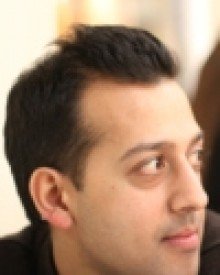Raheel Mohammed is the founder and director of Maslaha and has recently been profiled as one of Britain’s 50 New Radicals in The Observer newspaper for pioneering creative change to some of society’s most difficult issues. He has created award-winning resources which tackle inequalities in Muslim communities in areas such as health, education, the role of women in Islam, and the historical relationship between Islam and Europe.
Professor Michael Sandel, a leading thinker on political philosophy and a professor at a Harvard university, in a recent lecture at the LSEexplained how true democracy happened when we learned to live with each others differences and learned to bump up against one another. Historically, this country has been adept at this often messy “bumping” for centuries with the constant flow of migration of people and ideas.
 This kind of rich diversity, this mix of communities, leads to unexpected innovation and new ways of addressing long-standing problems. During our projects which straddle a number of sectors, the mix of people are our most valuable asset and lead to new networks of collaboration.
This kind of rich diversity, this mix of communities, leads to unexpected innovation and new ways of addressing long-standing problems. During our projects which straddle a number of sectors, the mix of people are our most valuable asset and lead to new networks of collaboration.
For instance in our Book of Travels exhibitions – www.thebookoftravels.org – the team of contributors included, Ottoman historians, sculptors, musicians, and private art collections. Our health work (www.caringforyourheart.org) has included the participation of GPs, patients, Islamic scholars, dieticians, film-makers, Sure Start centres, supermarkets, and schools.
Both these projects are examples of a wider community effort, made up of people and organisations who perhaps would not normally work together, and it is this variety that creates a rich and more impactful resource.
Some people have argued, however that not everyone is able to participate in or create these networks, especially those from deprived communities. How can we ensure that the growing field of social entrepreneurship and innovation does not become another kind of old boys network, led only by people who have attended the “right” universities, or happen to hang out at the right hubs?
In the course of our work we meet people who will never be heard in the mainstream media or give lectures to audiences of thought-leaders, practitioners and policy makers. Yet these very people in their consistent struggle to improve their communities are an immense untapped source of knowledge.
 These appear to be members of voiceless communities because they do not have a significant public profile but they are potentially far more innovative and useful in tackling social issues than the more established or “creative hubs of the moment”. In fact they have a huge voice in the cities they work in through the impact of their beliefs and actions.
These appear to be members of voiceless communities because they do not have a significant public profile but they are potentially far more innovative and useful in tackling social issues than the more established or “creative hubs of the moment”. In fact they have a huge voice in the cities they work in through the impact of their beliefs and actions.
Any old boys’ network, of any kind, will lack the true spark of imagination, as their vision and understanding of society is seen through a “group lens” of experience and memory. These networks need to be opened up. Less well connected organisations need to learn how to leverage social, political, financial and cultural capital in order to help create systemic change.
The idea of being able to have this fluidity and understand the potential of different groups is vital to innovation and social justice. Saul D Alinksy, the prolific American community organizer, whose ideas went onto influence among others Barack Obama, said that, “the organizer in order to be part of all can be part of none” (from Rules for Radicals, Saul D Alinsky, Vintage Books, 1971)







